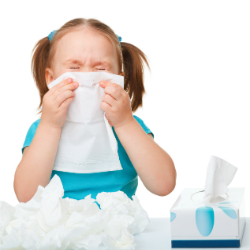Treating Viral Respiratory Illness in Children

Viral respiratory illnesses include colds, flu, and RSV. Treatment will focus on relieving your child’s symptoms and ensuring that the infection does not get worse. Antibiotics are not effective against viruses. Always consult with a doctor if your child has trouble breathing.
Helping Your Child Feel Better
Helping Your Child Feel Better
- Feed your child plenty of clear, room-temperature fluids, such as water or apple juice.
- Make sure your child gets plenty of rest.
- Keep your infant’s nose clear, using a rubber bulb suction device to remove mucus.
- Elevate your child’s head slightly with pillows to make breathing easier.
- Run a cool-mist humidifier or vaporizer in your child’s room to keep the air moist and nasal passages clear.
- Do not allow anyone to smoke near the child.
- Treat your child’s fever with children’s acetaminophen or ibuprofen (such as Tylenol or Advil). Do not give your child aspirin.
When to Call the Doctor
When to Call the Doctor
Most children get over colds and flu on their own in time, with rest and care from you. If your child shows any of the following signs, he or she may need a doctor’s attention. Call your doctor if the child:
- Has a temperature over 102°F.
- Has nausea or vomiting; can’t keep even small amounts of liquid down.
- Hasn’t urinated for 6 hours or more, or has dark or strong smelling urine.
- Has a harsh or persistent cough or wheezing; has trouble breathing.
- Has bad or increasing pain.
- Develops a skin rash.
- Is very tired or lethargic.


